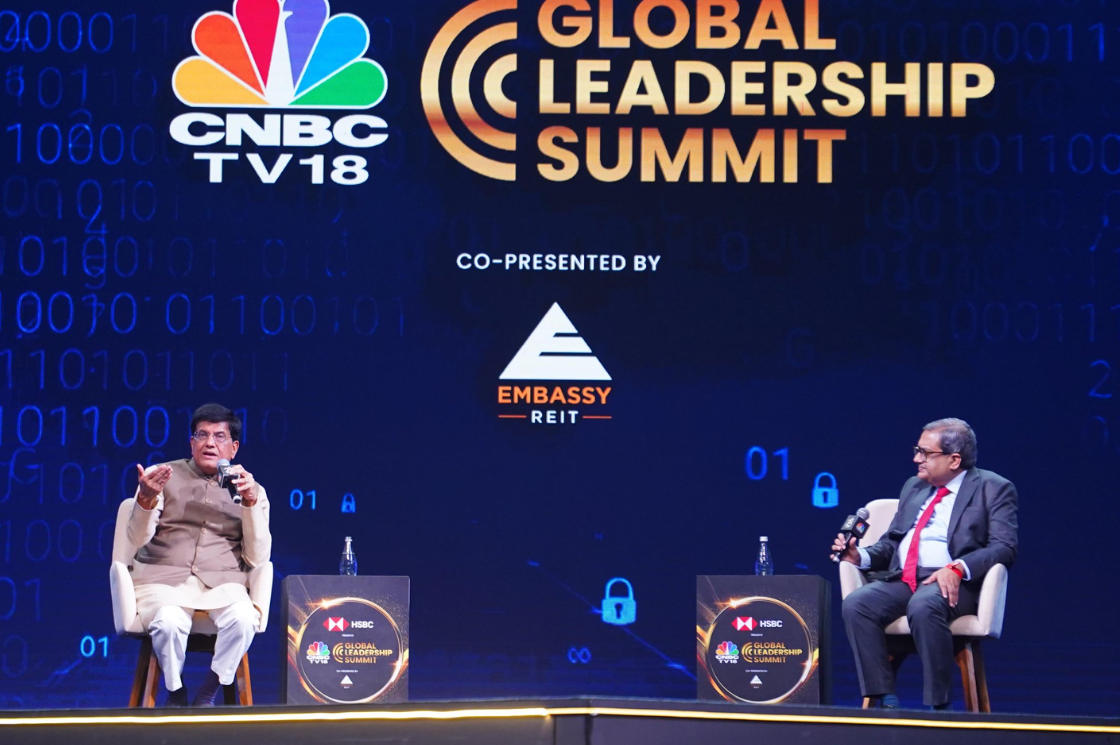
(Photo : PiyushGoyaloffc-X)
India's Union Minister of Commerce and Industry Piyush Goyal has called on the Reserve Bank of India (RBI) to consider cutting interest rates, questioning the central bank's current policy influenced by food inflation, amid broader concerns over economic growth and rising prices.
As of October 2024, India's retail inflation rate was 6.21%, which was higher than the Reserve Bank of India's (RBI) tolerance band of 2-6%. October's retail inflation overshot this range, with food inflation climbing to 10.87% from 9.24% in September. Food items, which make up nearly half of India's consumer price index, have a significant impact on overall inflation.
Speaking at the CNBC-TV18 Global Leadership Summit on Thursday, Goyal called the practice of basing rate decisions on volatile food prices a "flawed theory." He emphasized that his remarks reflect his personal opinions and do not represent the government's official stance. However, this is the first time a minister has openly sought action from the RBI.
Concerns Over Foreign Institutional Investor (FII) Withdrawals
Goyal also addressed concerns about foreign institutional investors (FII) withdrawing funds, advising investors to adopt a long-term outlook instead of focusing on quarterly fluctuations. Despite short-term challenges, he maintained that India's economic fundamentals remain strong.
"There is a huge competitive edge manufacturing in India gives you, so I think if smart business people start offering better pricing, better value for money, I am sure the market will give them a boost. It is for them to decide whether they want to sit on high margins," Goyal said.
"I am one of those who believes that economies of scale, that the huge demand that 1.4 billion Indians provide, the demand that our growing economy, our growing income levels offer, is unmatched and the affordability, the competitive edge that this economy of scale gives you, will help you not only meet India's need but also international demand," Goyal added.
Goyal expressed confidence that inflationary pressures would ease by December, stating, "Inflation under the Modi Government has been the lowest since India's independence."
RBI's Cautious Stance on Inflation
India has faced persistent inflation over recent months, pushing the RBI to maintain a cautious stance on interest rates. While the central bank's primary focus is controlling inflation, the policy has sparked debate as higher rates can slow down economic growth.
The Reserve Bank of India (RBI) has adopted a careful approach to ensure inflation remains within its target range of 2-6%, staying prepared to adjust interest rates when necessary. Given that food inflation influences core inflation indirectly, the RBI's cautious monetary policy is crucial for maintaining stability and preventing sharp price fluctuations. Although these actions alone cannot fully address food inflation, they are important tools in easing inflationary pressures.
RBI Governor Shaktikanta Das, however, said in August that India cannot and should not become complacent merely because core inflation has fallen considerably. "The public at large understands inflation more in terms of food inflation than the other components of headline inflation," he said.
Factors Driving Food inflation in India
Food inflation in India is driven by several factors, with one major contributor being irregular weather patterns and seasonal fluctuations, which can affect crop production. Unpredictable monsoons and extreme weather events like floods and droughts disrupt crop cycles, leading to reduced supply and higher prices, especially for essential vegetables and grains.
Further, speculative hoarding by traders, who stockpile goods in anticipation of price increases, creates artificial shortages and exacerbates price hikes.









